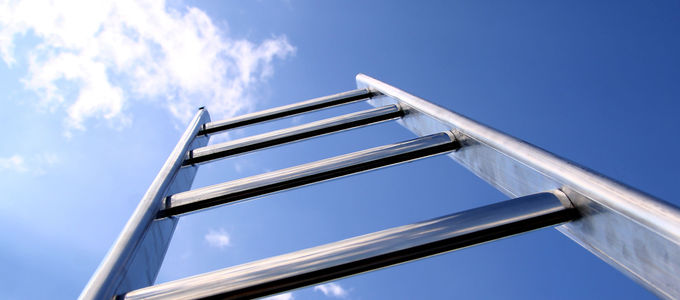
Learning from an anxious dreamer? A story from the eighteenth century before Christ provides impulses for our encounter with God and how we should approach divine services.
Israel, shortly before midnight. Jacob sneaks to his father with the intent of deceiving him. He wants to snatch the right of the firstborn for himself—even though he is not even entitled to it. His twin brother, Esau, discovers this when it is too late. The atmosphere is charged with hostility, and a family feud develops. The boys’ mother intervenes. She talks her husband into sending the younger of the two boys to her brother in Haran. She wants him to look for a wife there—far away from home, but still within the extended family. Their father, Isaac, agrees and sends Jacob away. The journey to his Uncle Laban becomes a way of escape from his brother Esau’s wrath.
Jacob leaves Beersheba, located in southern Israel, in the direction of north-eastern Haran in Mesopotamia (modern Turkey). He has a thousand kilometres ahead of him. There were no motorised vehicles at the time. Automobiles and airplanes were invented only 3,600 years later. After a long day’s journey—likely to put some distance between him and home—he reaches a place north of Beersheba. The sun had gone down and he stops for the night.
He takes a stone and puts it under his head. He is exhausted and falls asleep, and has a dream. He sees a ladder reaching into heaven. Based on the term su(l)lam used in the original Hebrew text, other translations speak of a flight of steps, a stairway, or a stepped ramp. In his dream Jacob sees angels going up and down the ladder. “The Lord stood above it and said: ‘I am the Lord God of Abraham your father and the God of Isaac’” (Genesis 28: 12). Although Jacob had incurred guilt by cheating his brother out of his birthright and had to flee, God nevertheless promises to be with him, and to keep and to bless him.
Jacob perceived the presence of God and was awestruck. Jacob perceived the presence of God and was awestruck. He accepts the solace offered by God and is aware of God’s promise. Today too there are sacred places. It is in divine service that God speaks with human beings and blesses them. This is where heaven and earth meet. And still today it is important to take a moment and pause in order to perceive the presence of God. Often we can only experience the presence of God if we leave our everyday problems behind us. The Trinitarian opening at the beginning of our divine services is such a signal for us to leave everything behind us and respond to and open ourselves up for an encounter with God.
Jacob set up a memorial stone and poured oil on it. In Old Testament times, such a masebah was erected as a symbol of commemoration, a place where God was worshipped. It was not misused for idol worship, but used to worship. Still today memories and experiences with God are important. Let us not allow our experiences with God to be displaced by thousands of other impressions in our stressful everyday lives. They must be worth a memorial. Encounters with God must not disappear without a trace.
Jacob called the name of that place Bethel. Translated it means “house of God”. Today too we can give the holy place an audible name, one that provides orientation. In conversation with our sister and brother, our neighbour, we can lend special significance to the holy place. It is a place like no other. It is more than a beautiful holiday spot, more than our home. It is something we must be able to grasp ourselves, and this can be demonstrated in our attitude towards our neighbour.
So that holy places remain holy, that divine services are perceived and experienced as encounters with God, it takes believers who sincerely and lovingly advocate these values and this holiness by being authentic examples. Then it will be easy for children and young people and brothers and sisters to recognise the holiness of the place and to preserve it. And important is not (only) a respectful attitude in our church buildings and toward them, but above all our approach to divine service itself.
The connection between heaven and earth should not be a rickety old ladder, but a solid and stable staircase, which will also be a refuge for future generations, and provide nearness to God and a safe place for them.
Photo: fotolia/Dream-Emotion




